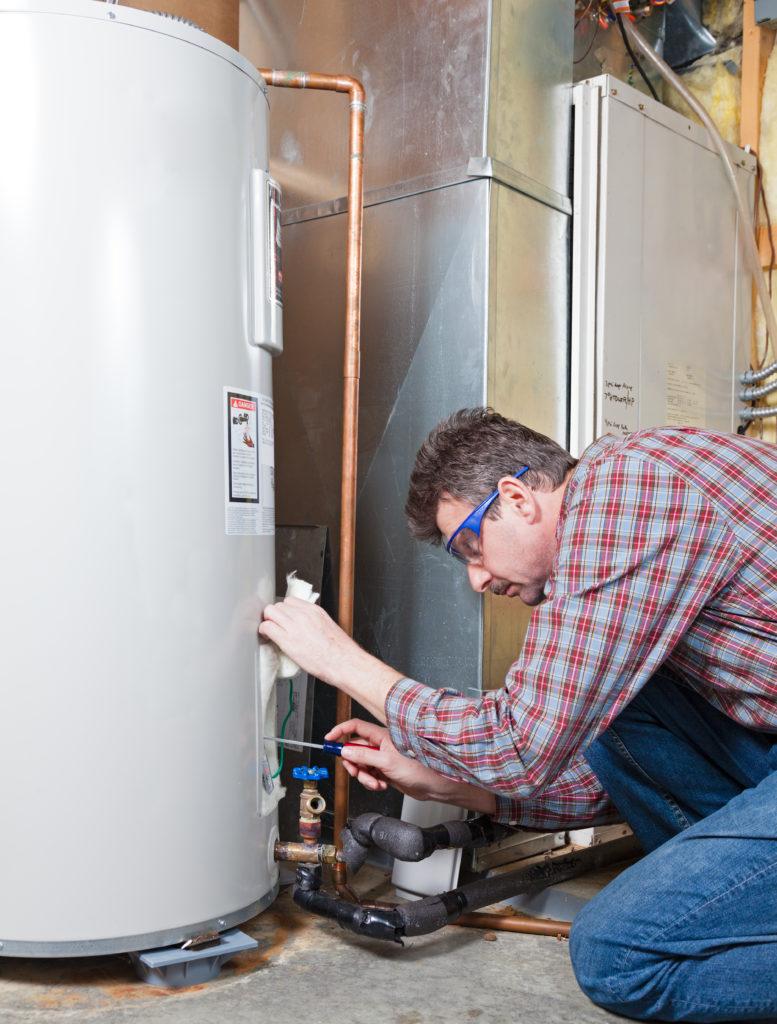January 5th, 2019

A usual lifespan of a conventional water heater is between 8 and 12 years. Tanks of present-day water heaters are steel lined with glass or porcelain and they rust and deteriorate over time. Most tanks will also develop leaks – either slow and unnoticed leaks or rapid ones causing ultimately more damage. For this reason it is good to know where your water shutoff valve is located.
There are homeowners that will exploit their water heaters for 15-20 years and although a water heater might still be working, its efficiency is reduced over time as sediment builds up inside the water heater tank.
Tankless water heaters are capable of lasting longer than traditional tank water heaters in case of proper maintenance of the tankless unit.
A few tips will become useful when it comes to prolonging your water heater’s lifespan:
- Use an expansion tank
An expansion tank is a small tank designed to protect closed water heating systems and domestic hot water systems from excessive pressure. If your home is on a closed system, installing an expansion tank can actually double the life of your water heater. Why? When water is heated from 50º to 120º, it expands by about 2% (a 50 gallon tank in this case will produce 1 gallon of extra volume). If your system is closed with a valve preventing your water from flowing back into the water main, this water has nowhere to run, causing rapid increases and decreases in water pressure. This expanding stresses out both your water heater and your plumbing system which can result in premature failure and ultimate damage. In this case the expansion tank will be a perfect solution.
- Add a second anode rod
The anode rod is a rod made of magnesium or aluminum that undergoes galvanic corrosion over time sacrificing itself and therefore protecting the tank from rusting. Installing a second anode rod will definitely prolong the lifespan of your current water heater.
- Drain water from your tank once a year
This relates to older tanks, because most of the contemporary models of water heaters are self-purifying. Flushing out the tank every year can help prevent deposit accumulation and maintain higher efficiency of your tank.
- Install a pressure regulating valve
If you your water pressure is above 90 PSI, it can damage your home appliances and cause your water heater to malfunction soon after its installation. By installing a pressure regulating valve, the water system pressure is reduced, consequently reducing damage to all of your appliances. Usually a pressure regulating valve is installed together with an expansion tank.
- Install water softeners
Some areas of California are known for water containing very high level of mineral content (often called hard water). Hard water causes collecting of mineral deposits onto water heater surfaces. This factor significantly shortens the life of your water heater. If that is the case, installing a water softener can be a great option, helping to protect plumbing system from hard water effects.
There are some other ways to make your water heater serve longer, contact Norwalk Plumbing Heating & Air Conditioning for more information.

